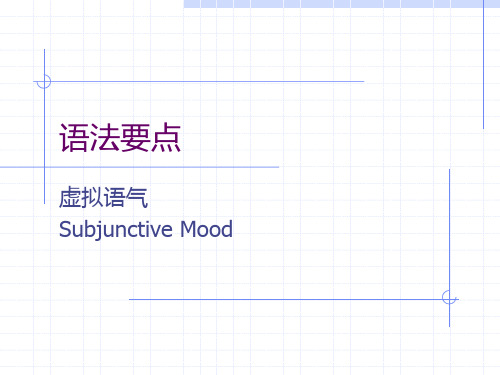6. Jean doesn’t want to work right away
because she thinks that if __w_e_r_e_t_o_g_e_t_ _/_s_h_o_u_l_d_g_e_t_/g_o_t___(get) a job, she
probably wouldn’t be able to see her friends very often.
我们用虚拟语气陈述现在不真实或想象的情景。
1) If I got married in UK, I would expect a present.
2) I could reach the book if I were a bit taller. 3) If I had the chance, I might want to be a translator.
We form unreal present conditionals like this:
If… was/were/did … , …would/could/might do …
Practice: 1. 假如现在我有更多的时间,我就会学习德语。 If I had more time now,I would study German. 2. 要是我象你一样年轻,我就会找时间锻炼。 If I were/was young as you, I would find time to exercise.
2) In written English or in formal situation, we usually use were in If-clauses in place of was. However, in everyday conversation, was is often used.





